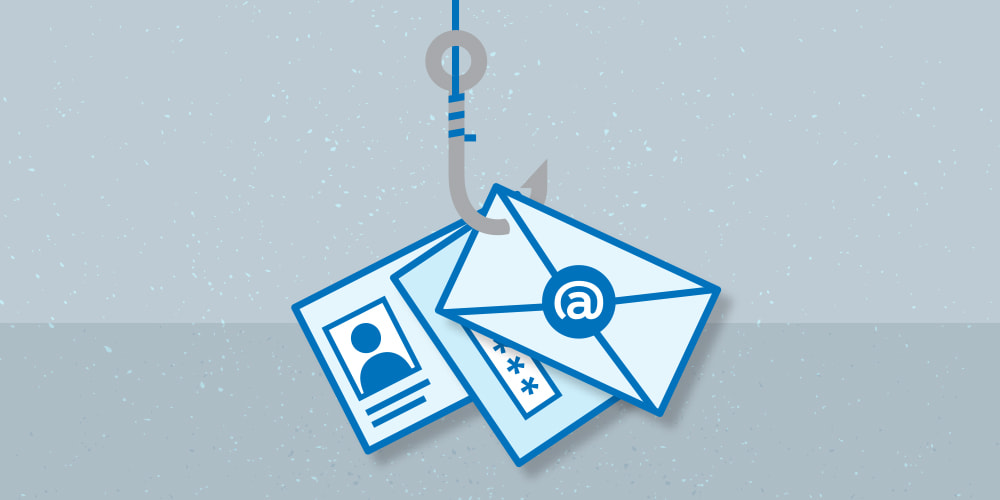In a time when cyber scams and fraud make the news on almost a daily basis, protecting yourself is more important than ever — it's a key part of your financial fitness.
The COVID-19 pandemic had many people who were laid off or furloughed applying for online assistance with Canadian Revenue Agency (CRA), and many companies shifting employees to work from home situations. This has meant a rise in cyber scams, and as a result the CRA has released a guide to keep you understand what activities are legitimate and which aren’t.
While financial institutions are doing a lot of work behind the scenes to keep your money safe and secure, your personal habits can affect how vulnerable you might be.
Here are some things you can do to maximize your personal cyber security.
Recognizing scams online
Some scam emails and posts can look legitimate. Know what to look for so you can keep your devices and information safe.
- Attachments or links from people that you aren’t expecting.
- Very urgent requests for you to provide information, transfer money or buy gift cards.
- Typos in the subject line or body of email.
- The email address or link doesn’t match the person or company it’s coming from.
- Telling you that you suddenly owe a lot of money or have had a large sum of money become available to you.
Strong password practices
It might not be easy or convenient, but strong passwords and diligent processes to keep them strong are your best line of defense against cyber criminals.
- Always use strong and secure passwords that aren't easy to guess.
- Increase your password strength by using a combination of letters, numbers and symbols, and using passphrases.
- Use unique passwords for each login and website.
- Keep your online banking information, PIN and passwords to yourself.
- Manually type your passwords when you're signing in instead of relying on auto-filling tools (in case someone gains access to your device).
Be careful on public networks
Public Wi-Fi networks definitely make internet more accessible, but because they are open networks, they're not very secure.
- Consider everything on a public Wi-Fi network as public.
- Only make financial transactions on private and trusted Wi-Fi networks.
Keep your computer clean and up-to-date
Having the latest security software and operating systems installed on your computers and devices is foundational to your cyber security.
- Enable and install all software updates and patches — these updates remove vulnerabilities and keep your identity and information safe.
- Use the most current anti-virus and anti-malware protection.
- Protect all devices that connect to the internet with security software.
Learn more
The Canadian Credit Union Association has videos, including the one below with more tips on strengthening your personal cyber security.
Originally posted on October 23, 2019.


